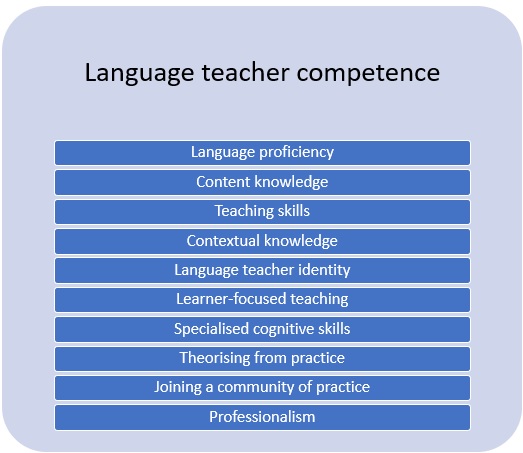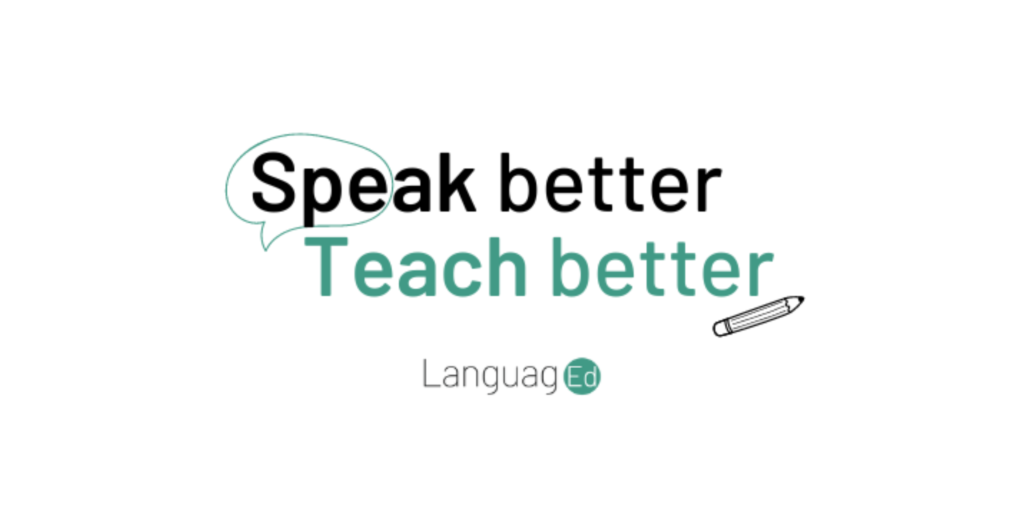


Do these sound at all familiar? In our work with English teachers all over Italy, we have heard these dozens of times. It is not at all uncommon for English teachers to be concerned about their own level of English.
The good news is there is a solution that is cost- and time-effective: English-for-Teaching, a specialised methodology designed to improve English proficiency in the specific field of English Language Teaching, not in general.
Our programme Speak Better Teach Better is based on this construct, so if you…
- teach a foreign language,
- want to improve your English speaking, including your vocabulary, grammar and pronunciation,
- need to discuss and learn new and practical teaching strategies for your classroom
… read on, as our programme might be exactly what you need.
The growing need for better English proficiency in Europe and Italy
It is no secret that English is the global language, but some wonder: is it destined to remain the global language? According to a report from the British Council on the future of English Language Teaching in Europe, the answer is yes: English will remain the dominant language in Europe, and with more people speaking it, teachers will need higher proficiency to keep up (British Council, 2018). Indeed, efforts all around Europe are being made to improve teacher proficiency in English.
The Italian case is a perfect example of this. Only about a third of Italians claim that they can have a conversation in English (European Commission et al., 2017) and a number of government policies have been in place for the past two decades to improve English language teaching. These ranged from the Progetto Lingue at the start of the century and have evolved with the introduction of CLIL in schools in the early 2010s and of the INVALSI English test at all levels of public education.
And that’s not all: since 2017, English is a requirement in all public concorsi – meaning that some English proficiency is always required to access a public government job.
This is especially true of teaching: in the 2020/2021 concorsi, teachers of all subjects had to show they had a B2 level of English as a minimum, while English teachers needed a C1 level.
Indeed, spoken proficiency is one of the three criteria used to evaluate teachers’ oral exams in the concorso ordinario, as explained in the quadri di riferimento:

The “oral interaction” criterion focuses very specifically on production and comprehension on teaching-related topics:

Teachers’ English proficiency: a vital competence, a potential obstacle
Many teacher development programmes assume that English language teachers have a good level of proficiency and thus do not work on developing it. However, language proficiency is a vital aspect of teacher competence – indeed, the first one listed by Jack Richards (2010) in his model of teacher competence:

So, if teachers’ English proficiency is regarded as so important by governments and society at large, what do teachers themselves think and how does it affect classroom teaching?
In terms of what teachers think, research suggests that especially “non-native” English teachers may perceive their proficiency as low and be concerned that it decreases with time (Guo et al., 2022).
This lack of proficiency in turn affects their self-confidence: as Jack Richards (2010: 104) reminds us, “a language teacher’s confidence is [..] dependent upon his or her own level of language proficiency, so a teacher who perceives herself to be weak in the target language will have reduced confidence in her teaching ability and an inadequate sense of professional legitimacy”.

This is by no means only an Italian problem: English teachers’ proficiency is a key aspect of teacher competence that is the subject of many teacher education programmes around the world. An example that is close to home is how important it is as a cross-curricular goal in Erasmus+ projects.
The limitations of a general English approach to enhance English teachers’ proficiency
English Language Teaching is a very peculiar subject, as English is simultaneously the medium and the content of instruction. In other words, you are supposed to be teaching in a language… that is also the content that students need to develop. This is unique to language teaching and as such, programmes that aim to improve teachers’ proficiency of “general” English are unlikely to be very successful in the short term.
Indeed, research shows (Freeman et al., 2015) that general English courses for teachers, based only on broad CEFR descriptors to define learning outcomes, “do not address or specify the specific demands of language use in the classroom” (p. 131). These might include micro-tasks such as managing disruptive behaviour, explaining pronunciation or giving feedback to a student’s oral production.
A specialised, cost-effective approach: English-for-Teaching
This is why we have researched and adopted an approach that is more effective (and cost efficient!) for language teachers: English-for-Teaching.
English-for-Teaching is an approach that develops the specific command of English that teachers need in the classroom. It is for teachers who use English as the medium of instruction although they also know the students’ first language, use instructional materials (e.g. textbooks) and teach students who are at beginning or intermediate levels (Young, Freeman, Hauck, Garcia Gomez, and Papageorgiou 2014).
English-for-Teaching moves away from general English proficiency to a more useful, time efficient approach for teachers that “can respond to often heard comments that general language training takes too long to make a difference in the classroom. By focusing on the work itself, English-for-Teaching can help teachers make more efficient and effective use of their time, energy, and experience” (Freeman et al., 2015, p. 137)
The LanguagEd English-for-Teaching new programme: Speak Better Teach Better
Based on this research and on years of work with language teachers in Italy, we have worked as a team for 6 months to design a conversation programme based on English-for-Teaching.

The programme is called Speak Better Teach Better and it aims to develop two key aspects simultaneously:
- Speaking proficiency, including fluency, accuracy and use of vocabulary, grammar and pronunciation
- Teaching skills, including teaching strategies and knowledge of topics of common interest for language teachers in schools
The programme leverages English-for-Teaching to make sure you get the best value for your time and money. Its methodology is based on these tenets:

If you’re curious about the programme and you think you might like to join it, head over to our dedicated page or join one of our free information sessions:
Did you enjoy our post? Share it with your friends:

